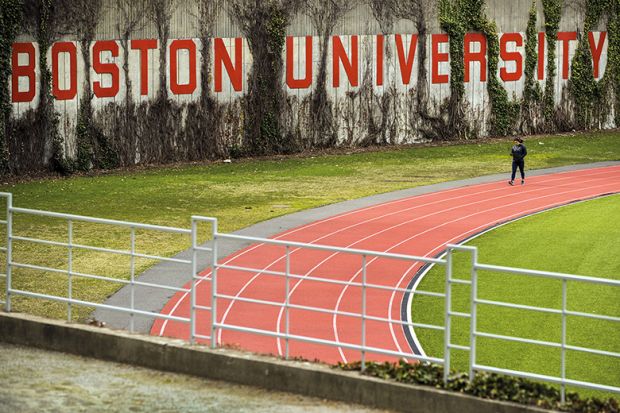Boston University (BU) is telling its community to prepare for the possibility of dramatically different or even no on-campus instruction this autumn, a blunt warning its president calls a necessary admission of reality, to allow for proper planning.
The mindset, said BU president Robert A. Brown, is helping his staff keep their focus on the preparations that matter most at a time of great uncertainty across higher education, the nation and the world.
“Facing up to that fact, I think, is important at this time,” Dr Brown, a former provost at the nearby Massachusetts Institute of Technology, who has led BU since 2005, said in an interview.
It is nevertheless raising anxiety, he admitted, at a time when students, faculty and almost everyone in society is eager for a return to normality, while trying to assess the relative costs of a bunkered civilisation.
For the most part, US universities are still consumed by the unexpected challenges of moving their entire spring semester operations online, while perhaps talking in general terms about evaluating options for the autumn.
A professor of chemical engineering, Dr Brown said that he took a hard look at the realities of fighting Covid-19 and the necessary conditions for normal close human contact.
He concluded that the nation’s current progress against Covid-19 meant that BU could not realistically host on-campus courses this summer and possibly this autumn. As a result, it is keeping classrooms closed through this summer. That position clears the way, he said, for BU to seriously begin reimagining the concept of a residential campus once the pandemic eases enough to allow some in-person instruction, with promises to set out specific details.
In practical terms, Dr Brown said, BU’s assessment process means considering tactics such as reconfiguring classrooms to hold far fewer students, with course time divided into online components and smaller in-class periods.
In somewhat more abstract terms, he said, the process means gaining a greater appreciation for faculty-student interactions and considering how to take the best possible advantage of them when they can occur.
By examining details such as touching doorknobs and sharing bathrooms, Dr Brown said, BU’s planners will unavoidably have to ask themselves what level of ongoing infection rate is acceptable while awaiting a vaccine. “That really is the fundamental question,” he said, “because it’s not going to be zero.”
The pressures on higher education, as with much of the rest of the economy, are substantial. US colleges and universities are especially vulnerable, Moody’s Investors Service said in a global analysis, because they rely so heavily on state funding, foreign students and endowment investments that have been hurt by paralysed economies.
The US institution with the biggest endowment, Harvard University, has just joined the growing number of campuses that have frozen spending, announcing a hold on hiring, salaries and capital spending, with pay cuts for top executives. Its president, Lawrence Bacow, has acknowledged being consumed by the need to decide about the autumn semester while “a tremendous amount of uncertainty” remains globally.
Dr Brown said that he, too, cannot predict the shape of the autumn semester, owing to major medical questions such as the future availability of widespread testing for Covid-19.
But he suggested that US colleges could be clearer to their communities about what simply isn’t possible at this point, and what some of their main choices look like, even while he admitted that broaching the idea of spending the autumn semester outside classrooms appears to have amplified fears at BU in the short term.
“There’s a risk with it,” he acknowledged. “And I think a lot of universities say: ‘Well, there’s a real risk of giving uncertainty by saying you don’t know the answer and exposing yourself.’”




